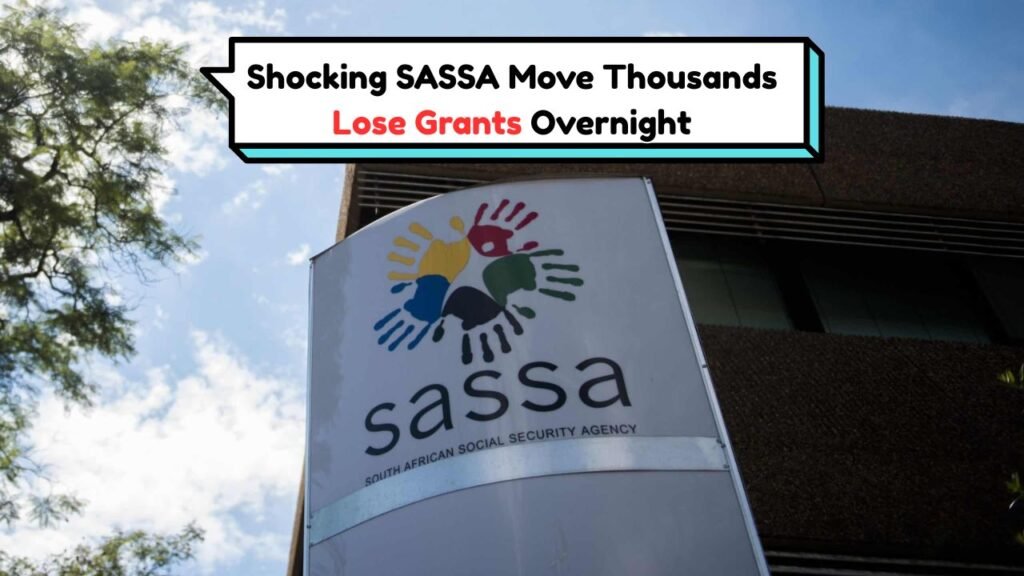SASSA Grant Suspensions in South Africa: Across South Africa, many beneficiaries have recently found themselves questioning the status of their South African Social Security Agency (SASSA) grants. With reports indicating that thousands of grants have been suspended, individuals who rely on this essential financial support are understandably concerned. SASSA grants are a lifeline for many households, providing critical support to the elderly, disabled, and vulnerable children. The sudden suspension has left many scrambling for answers, trying to understand the reasons behind the disruptions and what steps they need to take to restore their benefits.

Understanding Why Your SASSA Grant May Be Suspended
There are several reasons why a SASSA grant could be suspended, and understanding these can help beneficiaries take corrective action. One common reason for suspension is the failure to complete the necessary annual review process. SASSA requires beneficiaries to update their personal information and circumstances regularly to ensure they continue to qualify for the grants. Missed appointments or incomplete documentation can lead to temporary suspension. Additionally, any changes in financial status, such as an increase in household income, can affect eligibility. In some cases, administrative errors or changes in policy can also result in the unexpected cessation of payments. Beneficiaries are encouraged to keep their contact information up to date and to regularly check for any correspondence from SASSA to avoid missing important notifications.
Steps to Take If Your SASSA Grant Is Suspended
If you discover that your SASSA grant has been suspended, it’s important to act quickly. The first step is to contact SASSA directly to ascertain the specific reason for the suspension. This can usually be done via their toll-free helpline or by visiting a local SASSA office. Once you understand the cause, you can work on resolving the issue. If the suspension is due to incomplete documentation, gather and submit the required documents as soon as possible. For those affected by changes in financial status, providing proof of income or changes in circumstances may be necessary. It is also advisable to regularly check the SASSA website or official communication channels for any updates or changes in policy that may affect your grant. Staying informed and proactive is key to ensuring your benefits are restored promptly.
Implications of SASSA Grant Suspensions on Beneficiaries
The suspension of SASSA grants has significant implications for beneficiaries, as these funds often constitute a major, if not the only, source of income for many families. Without this financial assistance, households may struggle to cover basic necessities such as food, healthcare, and education. This can lead to increased vulnerability and hardship, particularly for the elderly and disabled who may have limited options for alternative income. The psychological impact is also considerable, as the uncertainty surrounding income security can cause stress and anxiety. Community support networks and non-governmental organizations (NGOs) often play a crucial role in providing temporary relief during such times, but the need to reinstate regular grant payments remains urgent to ensure the well-being of affected individuals.
Future Measures to Prevent SASSA Grant Suspensions
To prevent future suspensions and ensure the continuity of SASSA grant payments, beneficiaries can take several proactive measures. Keeping accurate and up-to-date records with SASSA is essential, including any changes in address, phone number, or financial circumstances. Participating in scheduled reviews and submitting all required documentation on time can help prevent administrative suspensions. Additionally, beneficiaries are encouraged to stay informed about any policy changes or announcements from SASSA, which can often be found on their official website or through community notice boards. By maintaining open lines of communication and remaining vigilant, beneficiaries can help safeguard their access to this vital financial support, reducing the likelihood of future disruptions.


